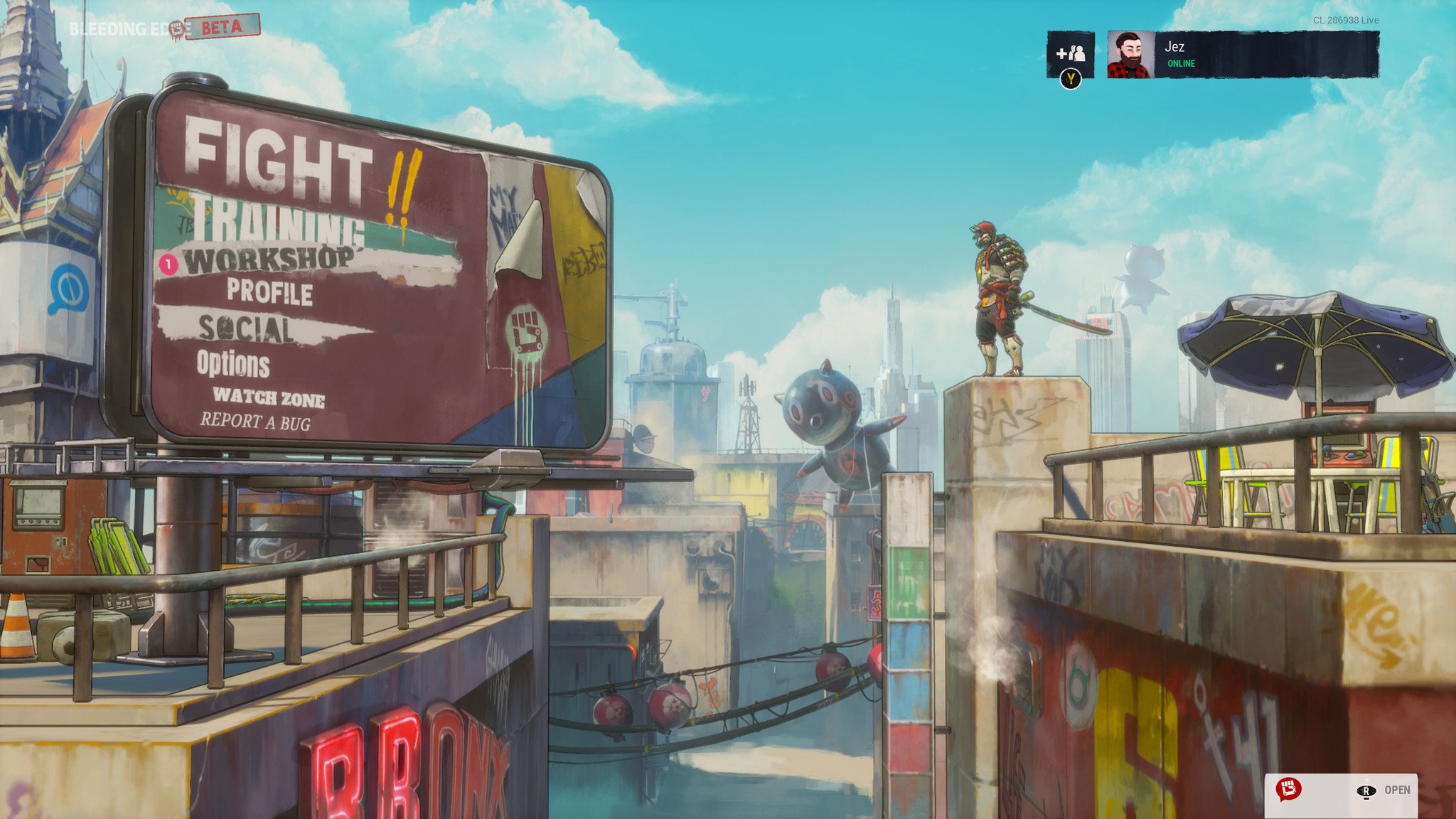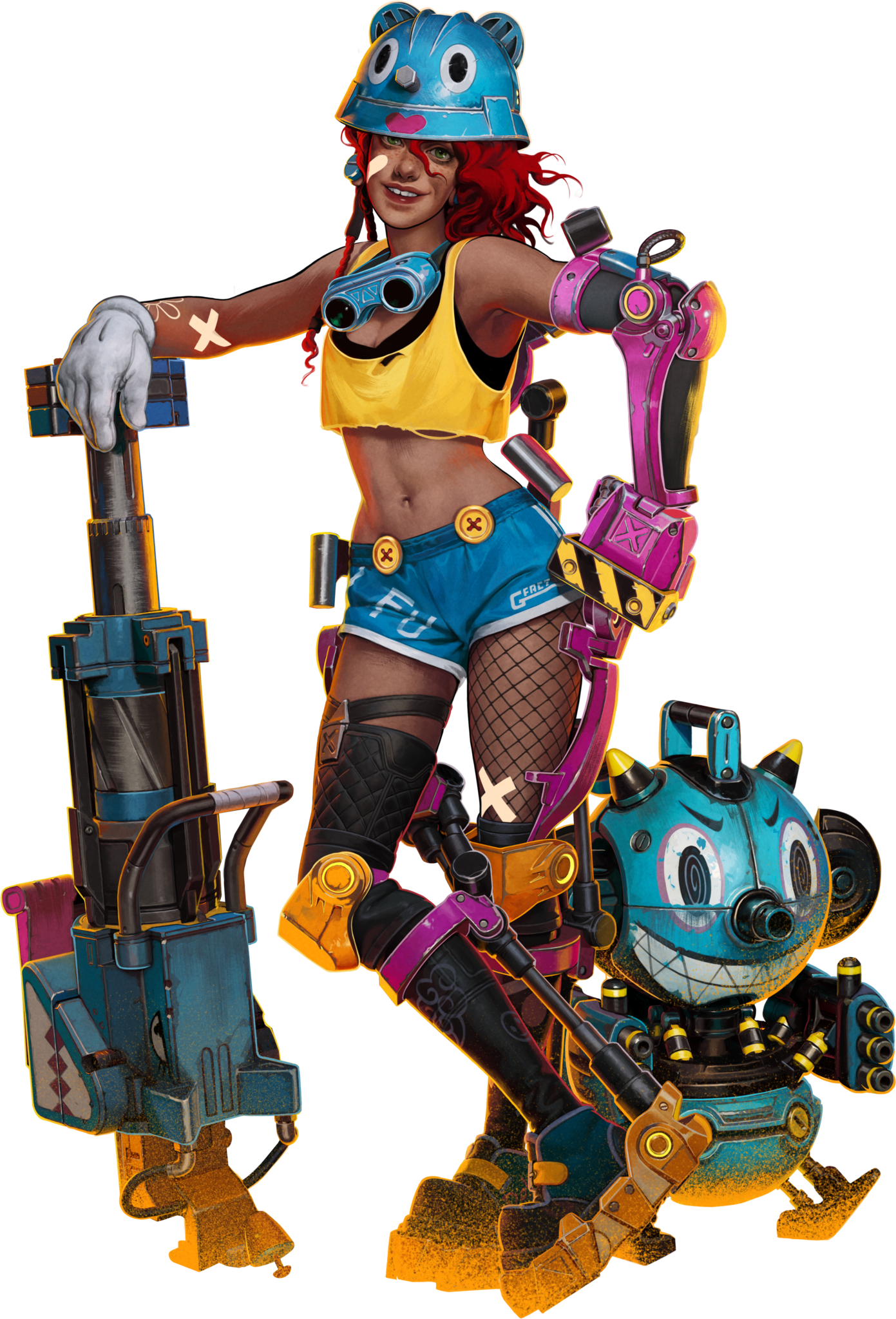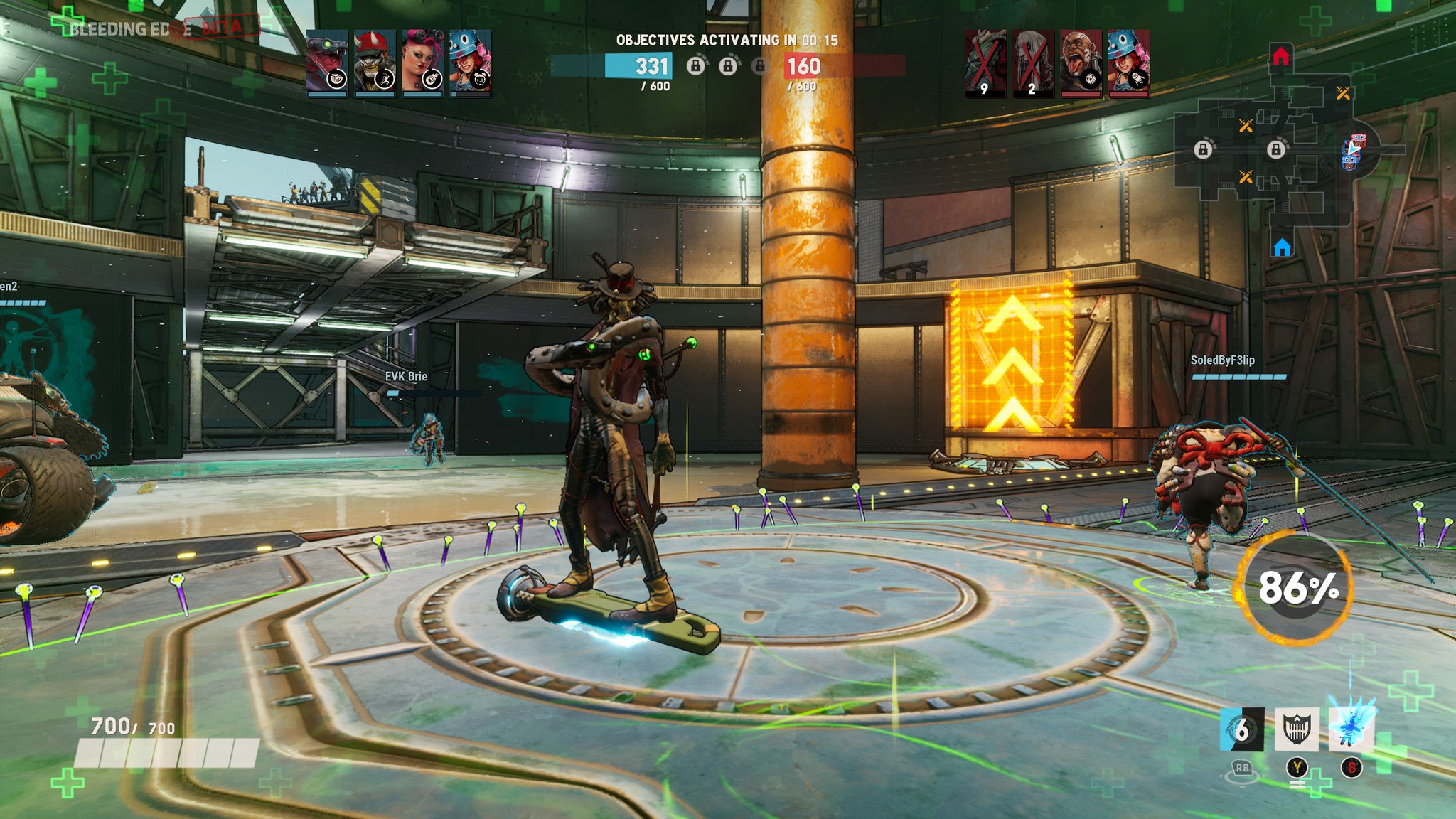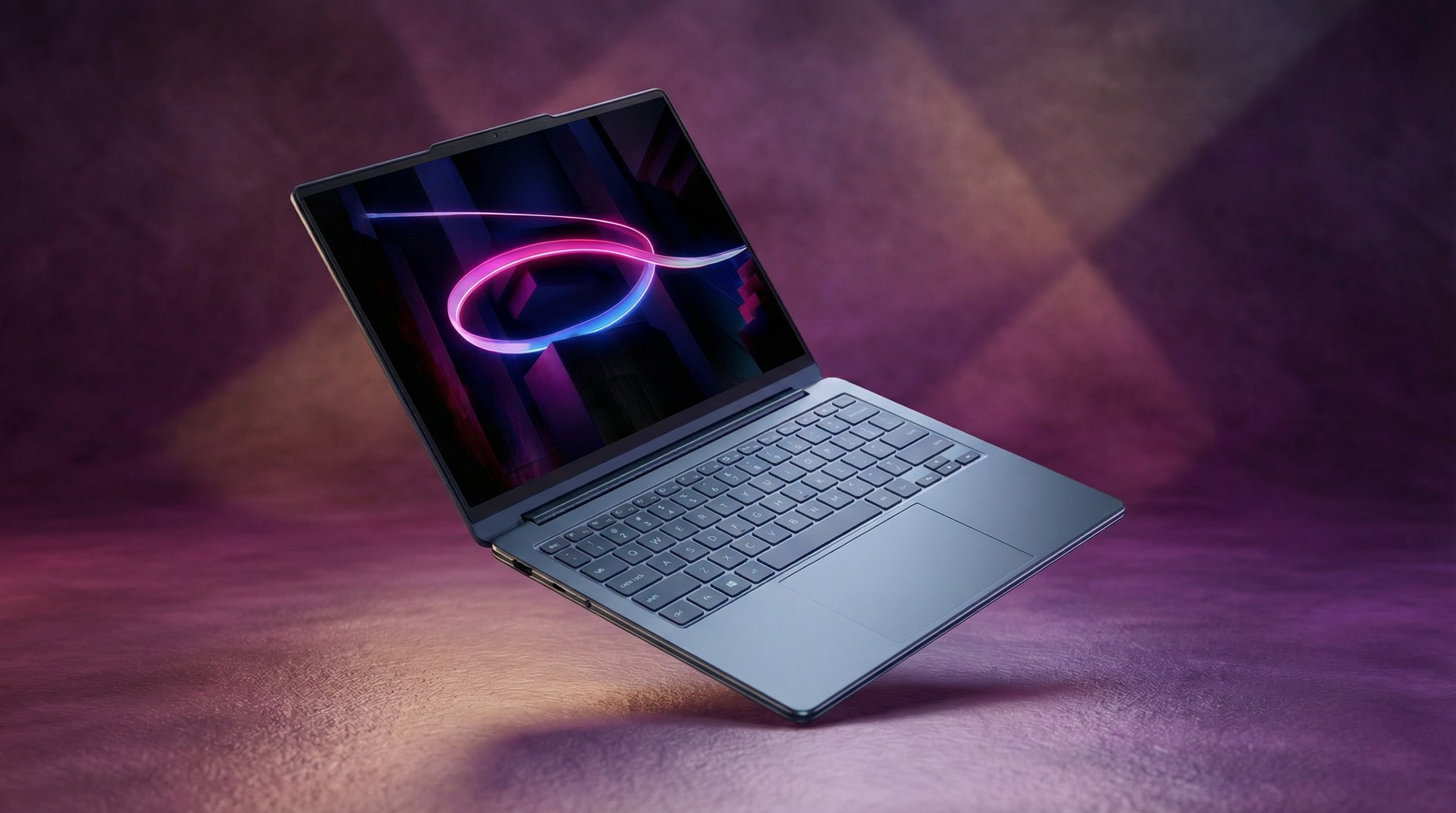Microsoft's upcoming brawler 'Bleeding Edge' is all I can think about
I gave Bleeding Edge a couple of tries last year during its alpha and early development, and while interesting, it didn't bite into me like its recent closed beta did. Now it's all I can think about.

All the latest news, reviews, and guides for Windows and Xbox diehards.
You are now subscribed
Your newsletter sign-up was successful
Ninja Theory joined Microsoft almost a couple of years ago now, as Xbox sought to increase and diversify its home-grown games portfolio. Ninja Theory is most recently known for Hellblade, which proved to be a surprisingly high-quality and stunningly cinematic adventure game on a relatively modest budget, something rarely done in the indie space.
Previously, Ninja Theory had worked on melee-oriented action games like DmC and Heavenly Sword, which at least on paper, correlates well to the studio's next game, Bleeding Edge.
Bleeding Edge is a multiplayer brawler where teams of four go head-to-head in a variety of objective-oriented battles. The game effectively revolves around a cyborg underground fight club of friends who pit their machines and body mods against each other in glorious combat, against the backdrop of a dystopian future. The premise is excellent, and the art design is stunning, but it's how the game feels in 2020 that has really gripped me. Bleeding Edge now sits among my most anticipated games.
Microsoft "service games" and cynicism
The immediate reaction to Bleeding Edge's reveal was mixed. While some lauded the game's vibrant art and unique character designs, many flocked to a knee-jerk reaction inspired by narratives against Microsoft's tendency to build service-driven games.
As a leader in cloud and subscription services, Microsoft has skewed towards live service games in the past, and many wondered if Bleeding Edge represented a departure from the single-player cinematic experiences of Hellblade. Ninja Theory was quick to address concerns, noting that Bleeding Edge was put together by a passionate team of just 25 developers, who are fans of MOBA-style titles and online PvP game types like World of Warcraft's arena system. And since then, we've had a glimpse at Hellblade II, by the way, which looks utterly stunning. This is what lead developer Rahni Tucker said to us last year at E3.
"So [our other team] focus on story-character experiences, but me personally, I'm more interested in building "gamey" games. I really like third-person action combat I wanted to do more of that. But at home, I play like competitive team games in my spare time. But yeah, Ninja Theory has two teams back at the studio, one working away on the type of stuff [fans] might be used to, this is not a change in direction for the studio. There's more than one thing that we're working hard on."
Bleeding Edge certainly isn't a super-duper unique concept. As mentioned, it takes cues from MOBAs like Smite and League of Legends (and it actually began life as a MOBA), and has some familiarity with other competitive arena games, with some cybernetic overtones that could be compared to Overwatch. However, it plays very differently to superficially similar games and has wormed its way into some of the most addiction-prone recesses of my brain.
Hey, Bleeding Edge is actually good
While I had some limited hands-on time with the game last year at E3 and during its alpha testing, it didn't really pinch me like it had in its recent closed beta in February 2020, exclusive to Xbox Game Pass subscribers. A coalescence of subtle tweaks has clearly elevated the way the game feels across the board.
All the latest news, reviews, and guides for Windows and Xbox diehards.
A coalescence of subtle tweaks has clearly elevated the way the game feels.
I'm not sure what it is without being able to compare the game's pre-release builds side-by-side, which were months apart, but every aspect of the game felt more satisfying this time around. Healers felt a little less squishy, tanks felt a little less immortal, and melee combat felt generally tighter. Playing Nidhoggr, the death metal guitar axe-wielding cyborg, felt far more impactful than I remember, letting me snipe kills on healers while being able to survive long enough to set fire to tanks. I spent the vast majority of my time with Kulev, however, 'cus British.
Kulev is a mad scientist who imported his consciousness into a snake, but kept his dead body around in some sort of grotesque embalmed, voodoo-inspired state. Kulev can produce an area of effect healing abilities, and shield himself and allies from damage. Like any arena class-based brawler, keeping your healers alive is pretty pivotal to victory. Left unchecked, it was hard to find a situation Kulev was unable to mitigate, easily creating victory conditions for my teammates.
The "a-ha" moment for me came through in the video above, where I was able to pop Kulev's ultimate on an unsuspecting Gizmo player, taking command of their controls and forcibly making them commit suicide. It was equal parts hilarious and somewhat nostalgic of similar abilities from World of Warcraft of years past, where priests could mind-control enemy players off cliffs and into the lava. The environmental hazards in Bleeding Edge add a dose of tactical chaos that is all the more rewarding when utilized properly.
Rounding off the experience was the rewards screens, which let you know more about your performance in the match, complete with currency rewards for purchasing in-game cosmetics and soft modifiers for skills, allowing you to change up your playstyle. Each hero comes with two ultimates and a variety of abilities that can be tweaked to alter your experience or role in combat, giving Bleeding Edge broad potential for a complex, evolving metagame.
Can it hit the big time, though?
We're living in a post-Fortnite, post-Overwatch world, where both games have peaked. Still, both enjoy millions of passionate fans who are either still actively playing, yet continue to duck-in and duck-out to try out new updates, new features, and so on. Thus is the nature of online service games.
The idea of a relatively modest, 25-strong team taking on the likes of Smite and Overwatch seems like an underdog story in waiting. Yet, I wouldn't count them out at all. Bleeding Edge might ship relatively light on content compared to some of the other big established players in the space, but the fact it'll launch day and date into Xbox Game Pass on both console and PC will give it an instant audience.
I have no idea if Bleeding Edge will stand the test of time, but if lots of people find it as addictive as I do, there's a high chance.

Jez Corden is the Executive Editor at Windows Central, focusing primarily on all things Xbox and gaming. Jez is known for breaking exclusive news and analysis as relates to the Microsoft ecosystem — while being powered by tea. Follow on X.com/JezCorden and tune in to the XB2 Podcast, all about, you guessed it, Xbox!




